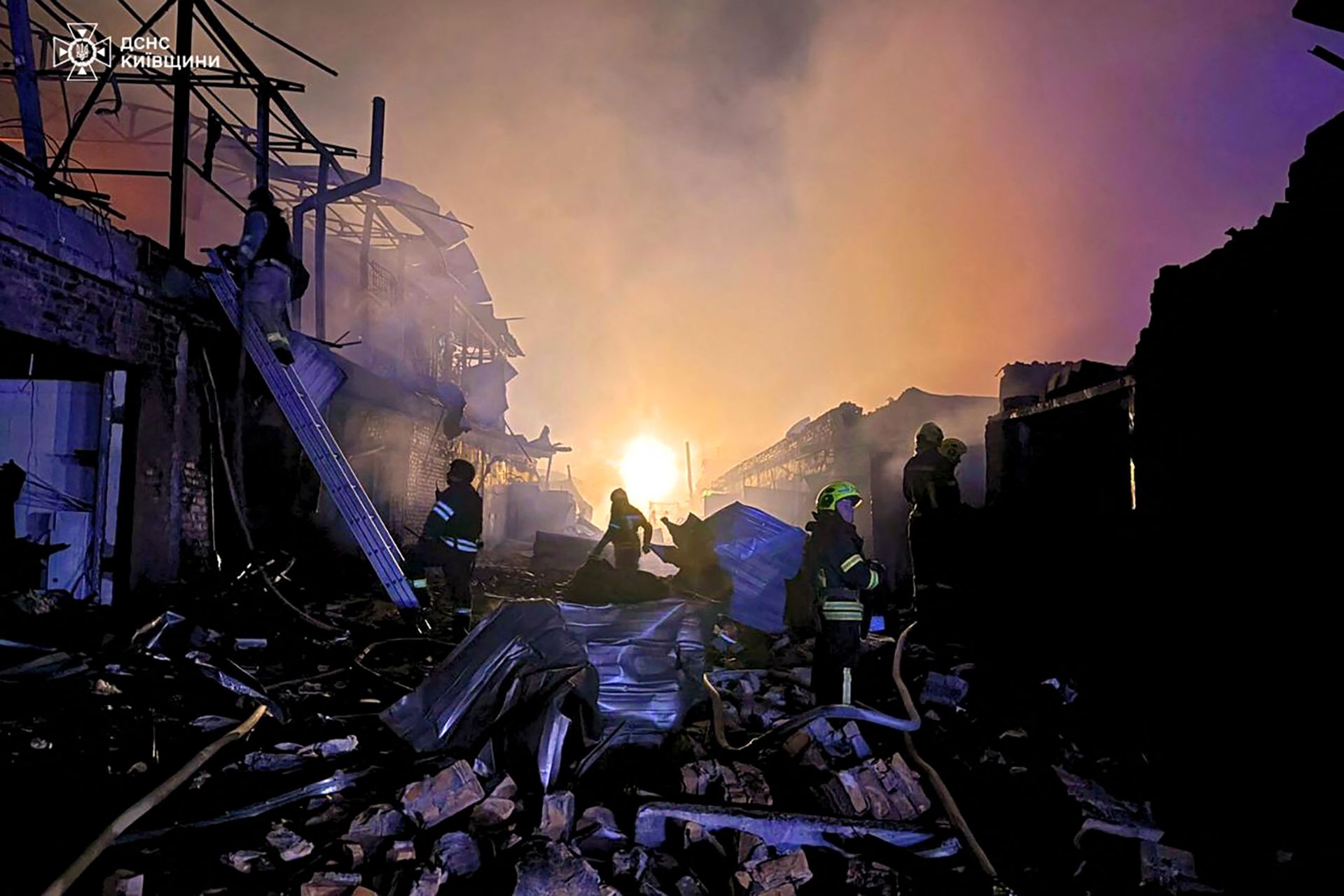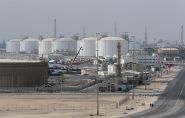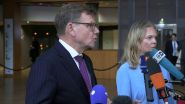- Home
- Middle East
- Trump Slaps ‘Tremendous’ Sanctions on Russian Oil for Ukraine War

Following President Trump shelving talks with Moscow, the US signals a major sanctions increase on Russia, while the EU advances its 19th sanctions package, including an accelerated LNG import ban, blacklisting of over 100 oil tankers, and tighter controls on Russian diplomats across Europe. ©Handout / UKRAINIAN EMERGENCY SERVICE / AFP
US President Donald Trump slapped sanctions on Russia's two largest oil companies on Wednesday, complaining that his talks with Vladimir Putin to end the Ukraine war "don't go anywhere."
The European Union also unveiled a fresh wave of sanctions to pressure Russia to end its relentless, three-and-a-half-year invasion of its neighbor, which is allied with both Washington and Brussels.
Trump has held off pulling the trigger on sanctions against Russia for months, but his patience snapped after plans for a fresh summit with Putin in Budapest collapsed.
"Every time I speak with Vladimir, I have good conversations, and then they don't go anywhere," Trump said in response to a question from an AFP journalist in the Oval Office.
But Trump added that he hoped the "tremendous sanctions" against Russian oil giants Rosneft and Lukoil would be short-lived. "We hope that the war will be settled," he said alongside NATO Secretary General Mark Rutte.
Speaking to reporters after the meeting, Rutte, often dubbed "the Trump whisperer," said he was confident that "with sustained pressure, we will be able to get Putin to the table to agree with a ceasefire, and then other talks coming after that."
US Secretary of State Marco Rubio said Wednesday evening that the United States still wants to meet with the Russians, despite the sanctions.
"We're always going to be interested in engaging if there's an opportunity to achieve peace," Rubio told reporters.
Separately, the EU agreed to impose new measures aimed at crimping Moscow's oil and gas revenues over the war, a spokesperson for the bloc's current Danish presidency said.
That package -- the 19th from the EU since the Kremlin's 2022 invasion -- sought to keep the pressure on Russia in light of Trump's faltering peace push and an escalation of Russia's offensive.
The sanctions came hours after Russia's latest overnight barrage on Ukraine killed seven people -- including two children -- and ripped into a kindergarten.
The US sanctions represent a major stepping up of its actions against Russia and reflect Trump's growing frustration at being unable to persuade Putin to end the conflict despite what he calls his personal chemistry with the Kremlin chief.
The sanctions involve a freezing of all Rosneft and Lukoil assets in the United States, while barring all US companies from doing any business with the two Russian oil titans.
"Given President Putin's refusal to end this senseless war, Treasury is sanctioning Russia's two largest oil companies that fund the Kremlin's war machine," US Treasury Secretary Scott Bessent said in a statement.
Bessent later told the Fox Business program Kudlow that it was "one of the largest sanctions that we have done against the Russian Federation.
"President Putin has not come to the table in an honest and forthright manner, as we'd hoped," Bessent said, adding that Trump was "disappointed at where we are in these talks".
Trump this week halted plans to hold talks with Putin in Budapest, saying he did not want a "wasted" meeting.
The Kremlin on Wednesday appeared to leave the door open for a summit, saying ahead of the sanctions announcement that preparations were still ongoing.
"No one wants to waste time, neither President Trump nor President Putin," Kremlin spokesman Dmitry Peskov told reporters:
As part of the new EU measures, the 27-nation bloc brought forward a ban on the import of liquefied natural gas from Russia by a year to the start of 2027.
It also blacklisted over 100 more tankers from Moscow's so-called "shadow fleet" of ageing oil vessels and imposed controls on the travel of Russian diplomats suspected of espionage.
The package is scheduled to be formally adopted tomorrow, just before Ukraine's President Volodymyr Zelensky joins EU leaders at a summit in Brussels.
Zelensky signed a letter of intent with Sweden earlier Wednesday to acquire 150 Gripen fighter jets.
During the latest Russian strikes, AFP journalists in Kyiv heard the buzzing of Russian drones and explosions throughout the night, and saw a pillar of smoke rising above the capital.
"My hands are still shaking," Kyiv resident Mariana Gorchenko told AFP. "I jumped up, glad that my little one wasn't in the room where the windows were blown out."
The strikes also damaged a kindergarten in Ukraine's second-largest city of Kharkiv.
Ksenia Kalmykova, whose child was inside the building during the strike, told AFP that she "pushed the emergency services aside and ran over" after arriving at the site.
"Someone had cuts, someone had something else. Of course, there were hysterics," she said of the children's condition, adding "thank God, everyone is alive and well."
With AFP
Read more



Comments